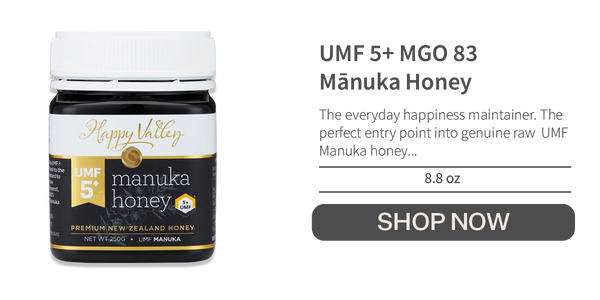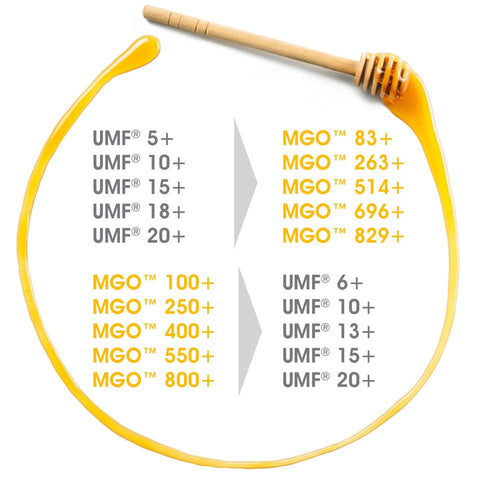
If you’re a honey enthusiast or health-conscious individual, navigating the world of manuka honey can be quite overwhelming. With so many options available, each promising various benefits and unique qualities, it’s crucial to know how to choose the right manuka honey for your needs. From understanding the grading system to considering factors like potency and authenticity, this article will guide you through the process of selecting the perfect jar of manuka honey that not only satisfies your taste buds but also boosts your well-being.
Understanding Manuka Honey
What is Manuka Honey?
Manuka honey is a type of honey that is produced in New Zealand and Australia by bees that pollinate the Manuka bush, also known as Leptospermum scoparium. This unique honey is highly sought after for its distinct flavor and numerous health benefits. It has become increasingly popular in recent years due to its rich nutritional profile and various therapeutic properties.
What Makes Manuka Honey Unique?
What sets Manuka honey apart from other types of honey is its high concentration of beneficial compounds. Unlike regular honey, Manuka honey contains a naturally occurring compound called methylglyoxal (MGO), which is believed to be responsible for its potent antibacterial properties. Additionally, Manuka honey has a unique flavor profile, with hints of herbal, earthy, and slightly bitter notes, making it a favorite among honey connoisseurs.
Health Benefits of Manuka Honey
Manuka honey is renowned for its exceptional health benefits. It has been used for centuries in traditional medicine to treat various ailments and promote overall well-being. Some of the proven health benefits associated with Manuka honey include:
- Boosting the immune system: Manuka honey contains antioxidants and immune-stimulating compounds that help strengthen the body’s defenses against infections and diseases.
- Healing wounds and ulcers: The antibacterial properties of Manuka honey make it effective in treating cuts, burns, and ulcers. It promotes tissue regeneration and prevents infection, aiding in the healing process.
- Soothing sore throat and cough: Manuka honey’s antiviral and anti-inflammatory properties can help soothe a sore throat and alleviate cough symptoms. It forms a protective coating, reducing irritation and promoting healing.
- Digestive health: Manuka honey is known to possess prebiotic properties, which means it nourishes the beneficial bacteria in the gut. This can improve digestion, alleviate gastrointestinal issues, and promote a healthy gut microbiome.
- Dental health: The antibacterial properties of Manuka honey make it effective in reducing plaque formation and preventing dental cavities. It can also help soothe gum inflammation and promote oral health.
Certifications and Ratings
UMF (Unique Manuka Factor) Certification
the UMF certification is a globally recognized standard that ensures the authenticity and quality of Manuka honey. It is administered by the Unique Manuka Factor Honey Association (UMFHA) and guarantees that the honey meets certain criteria, including specific levels of methylglyoxal and other beneficial compounds. Look for the UMF trademark and a valid UMF license number on the packaging to ensure you are purchasing genuine Manuka honey.
MGO (Methylglyoxal) Rating
The MGO rating is another important indicator of the potency and quality of Manuka honey. Methylglyoxal is the key antibacterial component in Manuka honey, and the MGO rating measures the concentration of this compound. The higher the MGO rating, the more potent and therapeutic the honey. Look for a reputable brand that clearly states the MGO rating on the packaging to ensure you are getting a high-quality product.
KFactor Certification
The KFactor certification is an alternative to UMF certification and is administered by Wedderspoon. It focuses on three key factors: pollen count, live enzymes, and antioxidant levels. The KFactor certification provides assurance of purity and authenticity, specifying the minimum percentage of Manuka pollen found in the honey. Look for the KFactor logo and the specific certification level on the packaging to ensure the quality of the honey.
Other Certifications to Consider
In addition to UMF, MGO, and KFactor certifications, there are other certifications that can provide further assurance of the quality and authenticity of Manuka honey. Some notable certifications include BioGrow, USDA Organic, and NASAA Organic. Each certification ensures that the honey has met specific standards and has undergone rigorous testing. While not mandatory, these certifications can be valuable indicators of a trustworthy product.
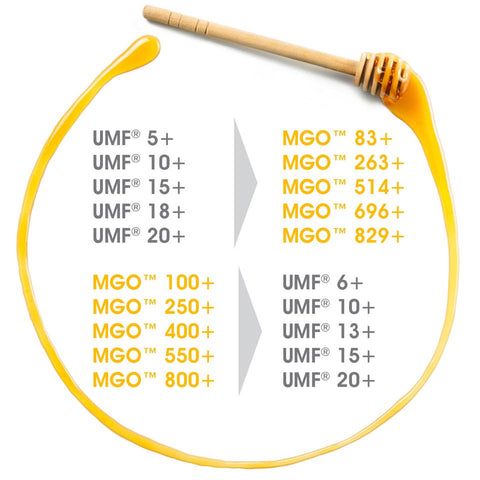
Purity and Authenticity
Check for 100% Manuka Honey
To ensure that you are purchasing genuine Manuka honey, it is essential to check the label for the words “100% Manuka honey.” Some products on the market may contain a blend of Manuka honey with other types of honey or sweeteners. By choosing 100% Manuka honey, you can be confident that you are getting the full range of health benefits and unique flavor profile associated with this special honey.
Origin and Traceability
When selecting Manuka honey, it is important to consider its origin and traceability. look for honey that is sourced from reputable beekeepers in New Zealand or Australia, as these countries are known for producing high-quality Manuka honey. Additionally, check for products that provide traceability information, such as the region or farm where the honey was harvested. This will give you confidence in the authenticity and quality of the honey.
Avoid Additives and Fillers
To ensure the purity of Manuka honey, it is advisable to choose products that are free from additives and fillers. Some manufacturers may adulterate Manuka honey with syrups or other substances to increase their profits. Read the label carefully and avoid honey that contains ingredients other than Manuka honey. By doing so, you can be sure that you are getting a genuine and unadulterated product.
Beware of Counterfeit Products
Unfortunately, the rising demand for Manuka honey has led to the proliferation of counterfeit products in the market. These products may claim to be Manuka honey but are actually made from other types of honey or have low concentrations of the beneficial compounds. To avoid falling victim to counterfeit honey, it is crucial to purchase from reputable brands and sellers. Look for established brands with positive reviews and a track record of producing authentic Manuka honey.
Grade and Potency
Different Grades of Manuka Honey
Manuka honey is graded based on its quality and the concentration of methylglyoxal (MGO) present in the honey. The New Zealand government has established a grading system that categorizes Manuka honey into four grades, with UMF 5+ being the lowest and UMF 20+ being the highest. The higher the UMF grade, the higher the concentration of beneficial compounds and the stronger the honey’s therapeutic properties. Consider your specific needs and desired potency when selecting the grade of Manuka honey.
Determining the Potency
To determine the potency of Manuka honey, it is recommended to check the MGO rating specified on the packaging. The MGO rating indicates the concentration of methylglyoxal present in the honey, with higher ratings indicating higher potency. The appropriate MGO rating depends on the purpose for which you intend to use the honey. For general health maintenance, a lower MGO rating may suffice, while higher ratings may be preferable for addressing specific health issues.
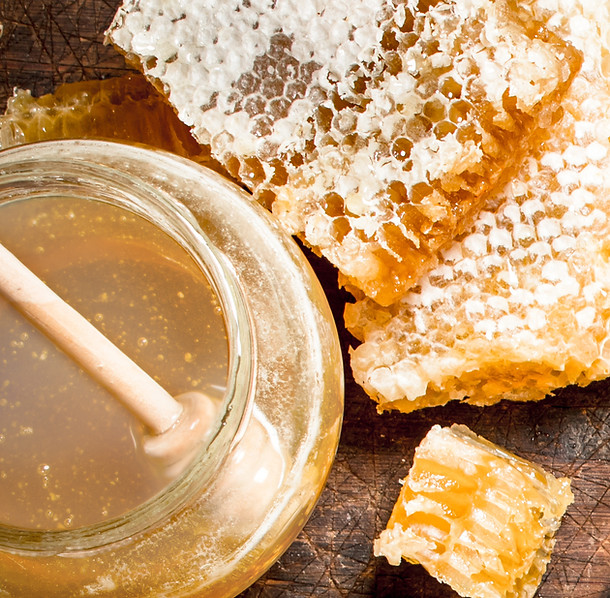
Packaging and Storage
Choosing the Right Packaging
To ensure the quality and longevity of Manuka honey, it is important to choose the right packaging. Opt for honey that comes in a sealed, airtight container to prevent exposure to moisture, air, and light, which can degrade the honey over time. Plastic jars or bottles may allow light to penetrate, leading to a reduction in the honey’s beneficial compounds. Instead, consider honey packaged in dark glass jars, which provide better protection against light and maintain the honey’s quality.
Dark Containers for UV Protection
Manuka honey is sensitive to light, especially ultraviolet (UV) rays, which can break down the beneficial compounds and reduce its potency. To prolong the shelf life and preserve the therapeutic properties of Manuka honey, choose honey that is stored in dark containers. Dark glass jars are particularly effective in blocking out UV rays and maintaining the honey’s integrity. Avoid honey packaged in clear containers or exposed to direct sunlight for extended periods.
Storage Conditions
Proper storage is crucial in maintaining the quality and freshness of Manuka honey. Store your honey in a cool, dry place away from direct sunlight and sources of heat. Avoid refrigeration, as the exposure to low temperatures can cause crystallization and changes in texture. It is also important to use clean utensils when scooping out honey to prevent contamination. Following these storage guidelines will ensure that your Manuka honey remains delicious and beneficial for a longer period.
Price and Budget Considerations
Understanding Price Variation
Manuka honey often commands a higher price compared to other varieties of honey due to its unique properties and limited availability. The price of Manuka honey can vary based on factors such as the grade, potency, certifications, and packaging. Higher UMF grades and MGO ratings are generally associated with higher prices. Additionally, organic certifications and premium packaging may contribute to a higher price point. It is important to consider these factors when determining your budget for purchasing Manuka honey.
Balancing Quality and Budget
While it is natural to want the best-quality Manuka honey, it is crucial to strike a balance between quality and budget. Assess your specific needs and desired usage of Manuka honey to determine the appropriate grade and potency for you. Consider the health benefits and therapeutic properties you seek, as well as your budget constraints. It is possible to find high-quality and authentic Manuka honey within different price ranges by comparing products and considering the aforementioned factors.
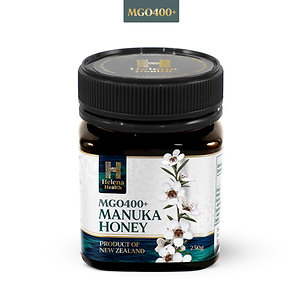
Sourcing and Sustainability
Ethical and Sustainable Practices
When choosing Manuka honey, it is important to opt for brands and beekeepers that practice ethical and sustainable methods. Look for honey that is sourced from beekeepers committed to environmental stewardship and the well-being of their bees. Sustainable practices may include organic beekeeping, protection of natural habitats, and responsible harvesting techniques. By supporting brands that prioritize sustainability, you contribute to the preservation of biodiversity and the protection of our natural resources.
Supporting Local Beekeepers
To contribute to the sustainability of the honey industry, consider purchasing Manuka honey from local beekeepers. Local beekeepers often have a closer connection to their bees and their environment, ensuring that the honey is of high quality and harvested sustainably. Additionally, supporting local beekeepers helps strengthen local economies and communities. Look for honey produced by beekeepers in your region or country to enjoy the benefits of supporting local agriculture.
Customer Reviews and Reputation
Researching and Reading Reviews
Before making a purchase, it is advisable to research and read customer reviews of the brand or product you are considering. Online platforms and review websites often provide valuable insights into the quality, authenticity, and customer experience associated with different Manuka honey brands. Pay attention to reviews from verified purchasers and look for consistent positive feedback regarding the taste, potency, and health benefits of the honey. This will help you make an informed decision and choose a reputable brand.
Reputation of Brands and Sellers
The reputation of the brand or seller is an important factor to consider when purchasing Manuka honey. Established brands with a long history of producing high-quality honey are more likely to deliver a reliable and genuine product. Do some research on the brand’s background, manufacturing processes, and commitment to quality. Look for recognized certifications or affiliations that indicate the brand’s adherence to industry standards. By choosing reputable brands and sellers, you can have confidence in the authenticity and quality of the Manuka honey you purchase.
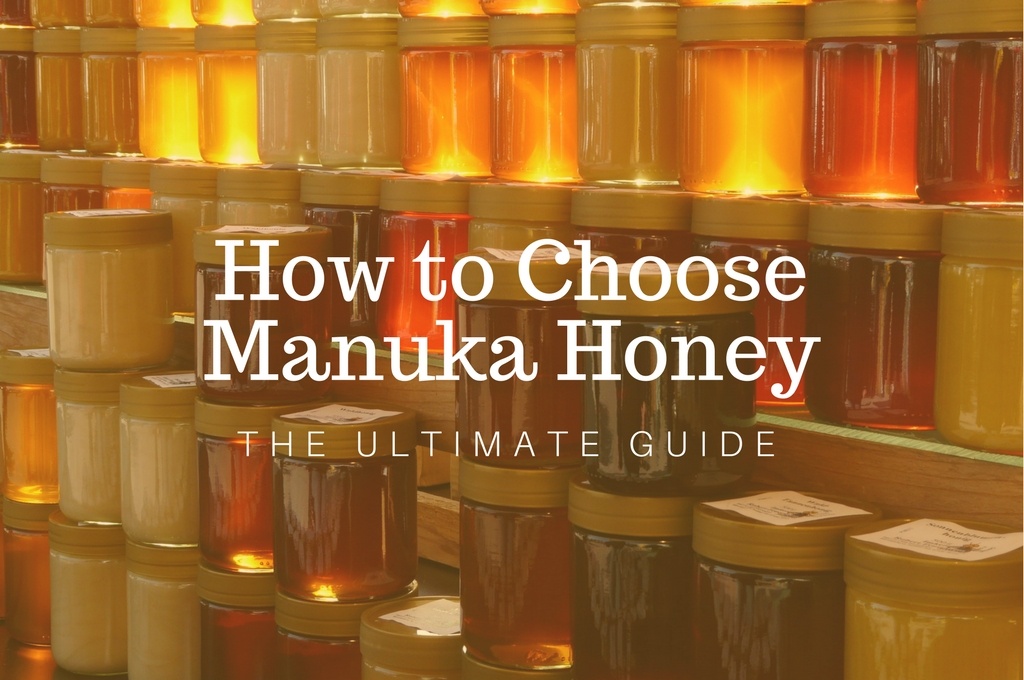
Usage and Application
Identifying Your Purpose
Before using Manuka honey, it is important to identify your specific purpose. Manuka honey can be enjoyed on its own, used as a natural sweetener in food and beverages, or applied topically for therapeutic purposes. Determine whether you are using it for general health maintenance, targeting a specific health issue, or incorporating it into your skincare routine. Understanding your purpose will guide you in selecting the appropriate grade, potency, and usage of Manuka honey.
Understanding Different Uses
Manuka honey has a wide range of uses and applications due to its unique properties. Some common uses include:
- Consuming as a dietary supplement: Take Manuka honey orally to boost your immune system, improve digestion, and promote overall well-being. It can be consumed on its own, mixed into warm water or herbal tea, or used as a natural sweetener in beverages and recipes.
- Incorporating into skincare routine: Manuka honey’s antibacterial and moisturizing properties make it a popular ingredient in skincare products. Use it as a face mask, spot treatment, or an ingredient in homemade skincare remedies for glowing and healthy skin.
- Applying on wounds and skin irritations: The antibacterial and wound-healing properties of Manuka honey make it effective for treating cuts, burns, scars, acne, and other skin irritations. Apply it directly to the affected area or use it in combination with other natural ingredients for enhanced healing.
- Soothing sore throat and cough: Manuka honey’s antibacterial and anti-inflammatory properties can help ease a sore throat and alleviate cough symptoms. Mix it with warm water or herbal tea, or consume it directly to experience its soothing effects.
Consulting an Expert
Seeking Professional Advice
If you have specific health concerns or medical conditions, it is recommended to consult a healthcare professional or a qualified nutritionist before incorporating Manuka honey into your routine. They can provide personalized guidance based on your individual needs and ensure that Manuka honey will complement your existing treatments or medications. Seeking professional advice will help you make informed decisions regarding the appropriate usage and dosage of Manuka honey.
Medical Conditions and Allergies
Individuals with certain medical conditions or allergies should exercise caution when using Manuka honey. Diabetic individuals should monitor their blood sugar levels and consult their healthcare provider before using Manuka honey as a dietary supplement. Those with pollen allergies or allergies to bee products should perform a patch test before applying Manuka honey topically. If any adverse reactions occur, discontinue use and consult a healthcare professional.
In conclusion, understanding Manuka honey is essential before making a purchase. By knowing what sets Manuka honey apart, recognizing the certifications and ratings to look for, ensuring the purity and authenticity, considering the grade and potency, choosing the right packaging and storage conditions, understanding the price and budget considerations, supporting sustainable practices, researching customer reviews and the reputation of brands and sellers, and identifying the purpose and different uses, you can make an informed decision and select the right Manuka honey for your needs. Always consult an expert, especially if you have specific health concerns or medical conditions, to ensure the safe and appropriate usage of Manuka honey. Enjoy the unique flavor and numerous health benefits of this extraordinary natural elixir!
